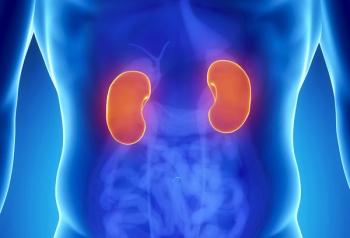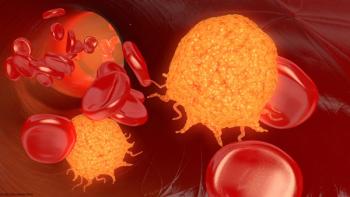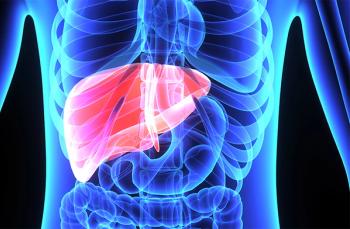
The FDA has approved 2 denosumab biosimilars for all prior approvals for the reference drugs in patients with cancers and osteoporosis.

Your AI-Trained Oncology Knowledge Connection!


The FDA has approved 2 denosumab biosimilars for all prior approvals for the reference drugs in patients with cancers and osteoporosis.

Retrospective analyses found that antihistamines added to atezolizumab yielded a 46% OS rate, a 48% CSS rate, and a 23% PFS rate in patients with metastatic urothelial carcinoma.

A retrospective cohort study found that, of Medicare decedents with advanced cancer, 45% experienced potentially aggressive end-of-life care.

Pirtobrutinib demonstrated PFS benefit compared with standard of care in patients with relapsed or refractory CLL in the BRUIN CLL-321 trial.

Pembrolizumab and bevacizumab yielded an ORR of 58.3% vs 12.5% with pembrolizumab monotherapy in patients with platinum-resistant nasopharyngeal carcinoma.

Despite prior relapses, 200 mg of linvoseltamab elicited complete responses or better in 49.6% of patients with relapsed/refractory multiple myeloma.

After treatment with an aromatase inhibitor plus a CDK4/6 inhibitor, switching to camizestrant plus a CDK4/6 inhibitor showed a PFS benefit over remaining on the aromatase inhibitor.

The survival benefit of dacomitinib was improved in real-world settings for patients with EGFR-mutant NSCLC compared with what the ARCHER 1050 trial shows.

The CAN-2409 combination improved survival post-progression vs standard-of-care therapy alone in the phase 2 PaTK02 trial.

Isatuximab plus bortezomib, lenalidomide, and dexamethasone demonstrated enhanced MRD-negativity rates and a PFS benefit in patients with newly diagnosed multiple myeloma.

A phase 1/1b trial found that the triplet combination elicited an ORR of 45.5% and a median PFS of 14.5 months in previously untreated clear cell RCC.

Patient-reported outcomes from CARTITUDE-4 showed a median time to sustained worsening of symptoms of 23.7 months with cilta-cel and 18.9 months with standard of care.

Data show that rucaparib yielded a median OS of 19.4 months compared with 25.4 months with chemotherapy in relapsed BRCA-mutated ovarian carcinoma.

Tambiciclib plus zanubrutinib doubled the expected ORR of zanubrutinib monotherapy, eliciting an ORR of 67% in patients with relapsed or refractory DLBCL.

Updated, comprehensive OS results with the combination in resectable NSCLC will be shared in a future peer-reviewed setting.

The FDA has accepted an NDA and set a PDUFA date of August 18, 2025, for the decision on dordaviprone in H3 K27M-mutant diffuse glioma.

Adverse physical functions were indicative of reduced survival and increased risk of ICANS in patients with non-Hodgkin lymphoma who were previously treated with CAR T-cell therapy.

Frances Chow, MD, and Elizabeth Ren Zhang-Velten, MD, PhD, spoke about several facets of the current brain tumor landscape, including targeted therapies.

Efficacy results demonstrated by regorafenib and sintilimab in patients with mSS mCRC were dependent on patient characteristics such location of metastasis and RAS type.

IBI363 demonstrated encouraging efficacy and a manageable safety profile in patients with squamous NSCLC based on results from a phase 1 trial.

Data from a multiple myeloma mouse xenograft model demonstrated promising tumor regression activity from OPN-6602 monotherapy and in combination with standard of care agents.

The phase 2 EPIC trial assessing patients with penile carcinoma met its primary end point of clinical benefit rate, with the lower bound of the confidence interval exceeding the null hypothesis limit.

Nivolumab plus cabozantinib yielded a median PFS of 16.4 months compared with 8.3 months from sunitinib alone in the first-line treatment of patients with advanced RCC.

Vimseltinib elicited an ORR of 40% vs 0% of matching placebo in patients with tenosynovial giant cell tumor in the phase 3 MOTION trial.

Patients who did not receive fish oil experienced a Ki-67 index increase of 24% vs the 15% Ki-67 index decrease for patients with a low omega-6, high omega-3 diet who received fish oil.

Early INB-100 results showed the potential to achieve durable remissions and improve survival in patients with complex leukemias, particularly AML.

Amezalpat plus atezolizumab and bevacizumab achieved a 6-month increase for OS compared with atezolizumab and bevacizumab alone in patients with HCC.

A retrospective systemic literature review showed that increased lines of therapy led to decreased HRQOL in patients with relapsed/refractory myeloma.

Following promising results from a trial investigating the effects of 225Ac-SSO110 on Balb/c nude mice injected with the xenograft model of SCLC, IND clearance was granted by the FDA.

Ziftomenib elicited positive responses in patients with NPM1-mutant acute myeloid leukemia, meeting the primary end point of the phase 2 KOMET-001 trial.